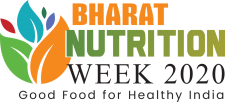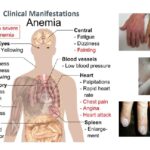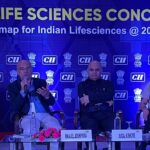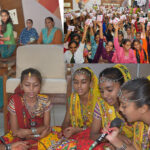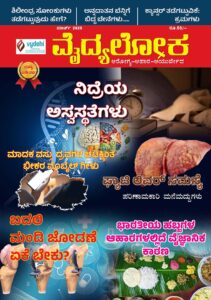National Anaemia Day to be observed on 21st March every year to raise awareness about a disease. Multisectoral leaders have collectively undertaken ‘Shapath’ for an Anaemia-free India at IHW Council’s ‘Bharat Nutrition Week’ Conclave.
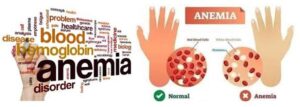

The multi-stakeholder collective ‘Shapath’ will work to reinforce the government’s commitment of an ‘anaemia-mukt Bharat’ by bringing down prevalence of iron-deficiency anaemia (IDA) from NFHS(4)-level of 58% to 40% in lactating women, from 50% to 32% in pregnant women, and from 54% to 36% in adolescent girls between 15 and 19 years-old by 2022. The target set for adolescent boys between 15 and 19 years-old is 11% from current 29% and to 40% from 58% in children between 6 to 59 months.
In addition to the IHW Council, other members of the collective include Federation of Obstetric and Gynaecological Societies of India (FOGSI), WWW Foundation, Asian Research and Training Institute for Skill Transfer (ARTIST), Vedanta Nand Ghar, WISH Foundation, and Emcure Pharmaceuticals. The team will bring together their respective expertise to identify the target groups and deploy specialized teams, provide products and equipment support for ‘test-and-cure’ programs in most-affected districts and states in India.
A rigorous data collection, documentation, and monitoring & evaluation (M&E) regime will be followed to assess the value of these interventions and collaborate with government authorities to leverage policy framework and contribute in accelerating the national mission to eradicate anaemia by 2022. “Anaemia is a problem that cannot be addressed due to a gap between knowledge and implementation. Swachh Bharat was a timely intervention. Another aspect we have seen is that once the officer in charge of programme changes, a fresh SOP is sought. This causes delay in implementing the measures to check anaemia,” says Dr Shanta Kumari, President Elect, FOGSI.
“That we do not have an anaemia day reflects the prioritisation or lack of it. Accountability is crucial for bringing change. We must have a structured way of implementing programs by following goal-setting, determining milestones and timelines, fixing ownership, and measuring the impact,” says Namita Thapar, Executive Director, Emcure Pharmaceuticals.
“We have a vision called ‘India at 75’ where we wish to see India free of malnutrition, one of the causes of anaemia. While working with the anganwadis, we found that so many of them were not getting mid-day meals. We are working on all these aspects and wish to see India anaemia free by India at 75,” says Ritu Jhingon, CEO-Nand Ghar, Vedanta Limited.
“Absence of toilets forced women to drink less water and take less food because it was a risk to their dignity. Initiatives like Swachh Bharat have helped a lot to address such problems. I want to tell the women, you embody the Indian culture of ‘give first and take later’ but do not allow yourself to go hungry, abused, or suppressed,” says Sadhvi Bhagawati Saraswatiji, Secretary-General, Global Interfaith WASH Alliance President, Divine Shakti Foundation.
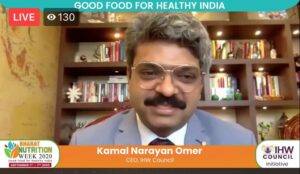

Aiming to raise the awareness and discussion around nutrition among children, a fact highlighted by hon’ble Prime Minister Narendra Modi during his ‘Mann ki Baat’ broadcast, the event will have a special segment titled ‘Bharat Nutrition Quiz Show with School Kids’, where students from all over India will participate. Panel discussions with around 100 speakers including government officials of various ministries and institutions; policy experts of WHO and UNICEF; industry leaders, researchers, and medical practitioners will deliberate for over 60 hours on the pressing issues related to availability and access to nutrition. Discussion forums involving leading dieticians, nutritionists, food entrepreneurs and influencers will be held under ‘Good Food Talk Show’ while ‘Healthy Khayega India’, a special live session, will host celebrity chefs.
